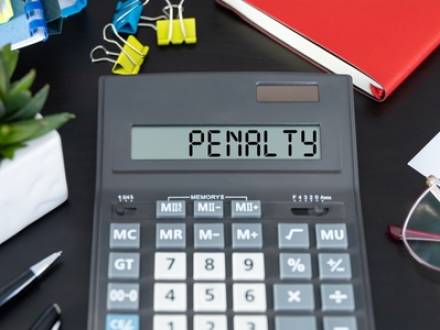What Defenses Can Taxpayers Use Against IRS Penalties?
 The penalties that the IRS may impose when taxpayers fail to meet their tax obligations can be steep. These penalties may apply for the failure to file tax returns or other tax forms on time, the failure to pay taxes that are owed, or providing incorrect information on tax forms. Fortunately, there are several options that may be available to taxpayers to address and defend against these penalties.
The penalties that the IRS may impose when taxpayers fail to meet their tax obligations can be steep. These penalties may apply for the failure to file tax returns or other tax forms on time, the failure to pay taxes that are owed, or providing incorrect information on tax forms. Fortunately, there are several options that may be available to taxpayers to address and defend against these penalties.
Understanding the appropriate defenses is not always easy due to complex tax laws and new developments that take place as cases are heard in tax courts, district courts, appeals courts, and the U.S. Supreme Court. For taxpayers who are facing potential penalties, the assistance of an experienced tax lawyer can be crucial. An attorney can provide guidance on the laws that may apply in a specific case and the defenses that may be successful.
Reasonable Cause Defense
The most common defense that taxpayers use when handling failure-to-file, failure-to-pay, or accuracy-related penalties is to assert that they had a reasonable cause. That is, they may state that they had a valid reason for their failure to file or pay, and they acted in good faith based on their circumstances. However, there are some limits to what may be considered a reasonable cause.
For example, a reasonable cause for failure to file a tax return or failure to pay taxes may include a natural disaster, a death or serious illness, or an inability to access records that were required when filing tax forms. Mistakes or lack of knowledge of tax laws usually are not valid defenses in these cases. Penalties related to accuracy may qualify for relief based on a lack of knowledge of tax laws, and the steps a person has taken to correct the issues and pay taxes as required may be considered.
Section 6751(b) Relief
Some taxpayers have been successful in receiving relief from penalties under Section 6751(b) of the Internal Revenue Code. This section states that penalties cannot be assessed by the IRS unless the initial determination of a penalty is properly approved in writing by an IRS official. In cases where the IRS did not meet this approval requirement, a penalty may be considered unlawful. However, this option will not be available in cases involving late payments, failure to file tax returns on time, failure to make estimated tax payments, or any other penalties that have been automatically calculated using computers or electronic technology.
Constitutional Relief
In some cases, taxpayers may be able to assert that tax penalties are unconstitutional. Some taxpayers have successfully argued that willful FBAR penalties, which may be as high as 50% of the balance of an unreported foreign account for each year of a violation, are excessive and can be considered a violation of the "excessive fines" clause in the Eighth Amendment. Taxpayers have also invoked the Seventh Amendment, which provides the right to a jury trial, to contest penalties that were imposed without having a case reviewed by a jury.
Procedural Issues
Another defense that has been successful for some taxpayers involves showing that the IRS did not follow the proper procedures when assessing penalties. In the case of Farhy v. Commissioner, a court ruled that penalties under section 6038 of the Internal Revenue Code regarding the failure to file Form 5471 and report an interest in a controlled foreign corporation could not be assessed administratively but had to be recovered through litigation in a federal district court. This decision was later reversed by the D.C. Circuit Court of Appeals, but courts outside of the circuit that serves the Washington, D.C., area have continued to make this form of penalty relief available.
Contact Our San Jose Tax Penalty Abatement Attorney
The methods that may be used to request relief from tax penalties can be difficult to understand for those who are not well-versed in tax laws and the most up-to-date court rulings. To make sure these issues can be addressed correctly, taxpayers can work with a tax attorney. At John D. Teter Law Offices, our San Jose, CA tax lawyer can provide guidance on what steps taxpayers can take to reduce or eliminate IRS penalties and minimize their tax burdens. Contact us at 408-866-1810 and arrange a consultation to learn more about how we can assist with your tax-related concerns.









